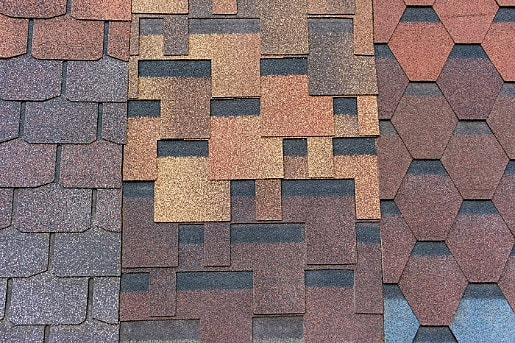Your home’s roof plays a remarkable role in boosting the safety of your property and family. In addition, it safeguards your property against adverse weather conditions and enhances your home’s curb appeal. There are various roofing materials, including asphalt shingles, metal roofing, wood shingles, clay tiles, concrete tile, slate shingles, synthetic slate tile, etc. Therefore, choosing the right material can be overwhelming, but it’s worth the hassle. Some people think they can choose a material based on aesthetics only, but there are other essential aspects to consider. Below are tips for choosing the right roofing material:
1. Cost of the Material
The cost is an important aspect to consider when selecting the right roofing material. Roofing materials prices may differ based on the type of material. In addition, different stores will quote different prices. Therefore, ensure you do thorough research before investing in a certain material. You should choose a material that suits your tastes, preferences, and budget. Ensure the price of the material reflects its quality. Some materials are affordable yet high-quality, while others are costly but sub-standard. Low-priced materials aren’t the best because most of them have defects.
2. Material Weight
Heavy roofing materials can compromise the integrity of your home. You should analyze your home’s foundation to determine the best material weight. For instance, invest in light-weighted materials if your property has a weak foundation. The right material weight will enhance the longevity of your house.
3. Durability
Different materials have different life spans. For instance, asphalt shingles has an estimated lifespan of 5 to 10 years. On the other hand, metal shingles have a lifespan of 40 to 70 years. There are various benefits to choosing durable materials. Firstly, you’ll save money in the long run due to low maintenance costs. Secondly, materials with a long lifespan will maintain the value of your home. Lastly, durable materials will improve your home’s curb appeal. This is because durable materials won’t be affected by adverse weather conditions.
4. Climatic Conditions
When selecting the best roofing materials, it’s essential to consider the local climate. For instance, if there’s plenty of rain in your geographical location, invest in a material that can withstand heavy rainfall. On the other hand, if your area is prone to hail storms, opt for a material that withstands hail. To determine the suitable material, evaluate its set of qualities. A weather-resistant material will have a long lifespan. Therefore, ensure you assess different materials.
5. Energy Efficiency
An excellent roof should have the ability to conserve indoor energy. This type of roof will lower your monthly utility bills, thus increasing your savings. Certain materials, such as asphalt shingles and metal, will reflect heat from your home rather than absorb it. These materials are ideal because you won’t need to use your air conditioner to cool your premises. Energy-efficient roofs have a significant impact on your utility bills.
6. Design of Your Home
The style of your home can influence your decision on the type of material you need. Based on research, various materials are designed with features that fit different architectural designs. For example, ancient materials won’t fit modern home designs. Therefore, you should consider buying materials that’ll suit the design of your home. It can be overwhelming to determine the right material that matches your home’s style. Therefore, consult a professional architectural designer with enough experience in this industry.
7. Ease of Installation and Maintenance
Some materials are complex to install, while others are simple. This aspect will significantly affect your decision, especially if you’re looking forward to adopting the do-it-yourself route. Roof Installation requires professionalism, high-tech equipment, and specific skills. Consider hiring experienced roofing contractors. Homeowners in Florida, for example, often rely on trusted Lake County FL roofing companies to ensure proper installation and reliable ongoing maintenance—especially given the region’s unique weather conditions. Choosing a local expert familiar with the climate can help extend the life of your roof and reduce long-term costs. Working with the right local roofing company, can save time on inspecting your roof. There are some aspects that you should take into account when looking for the right roofers, including reputation, experience, warranty, licensing, insurance cover, and quality of services.
Maintenance of the roof should be done at least once per year. This process incorporates a thorough inspection of the roof and sub-roofing materials. The main aim of this procedure is to identify and rectify vulnerable sections of your roof. Choose a roof that will require low maintenance, especially in the long run.
Conclusion
There are various factors for selecting a suitable roofing material, including material weight, energy efficiency, climatic conditions, home design, roof maintenance, the durability of the material, etc.




